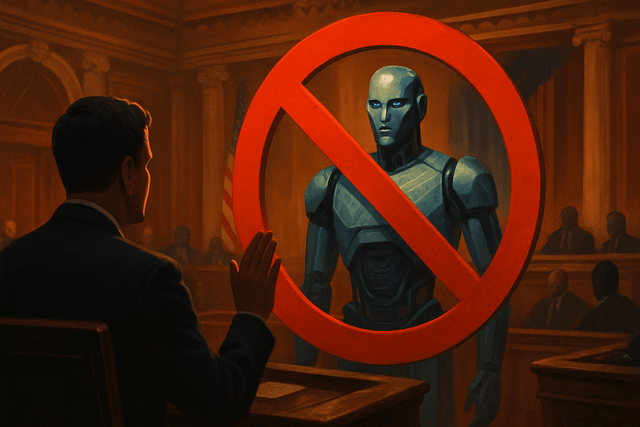The US Senate delivered a resounding blow to Big Tech's legislative ambitions by striking down a provision that would have imposed a decade-long moratorium on state-level artificial intelligence regulations.
The controversial measure, originally included in President Trump's sweeping domestic policy legislation nicknamed the 'One Big Beautiful Bill,' was defeated in a near-unanimous 99-1 vote during an overnight Senate session on July 1. Senator Marsha Blackburn (R-Tennessee), who had initially worked on a compromise version of the provision, ultimately led the charge to remove it entirely.
Tech giants including OpenAI and Google had vigorously supported the moratorium, arguing that navigating different regulatory frameworks across 50 states would create compliance challenges and potentially slow American innovation in the global AI race with China. OpenAI CEO Sam Altman had previously testified that 'it is very difficult to imagine us figuring out how to comply with 50 different sets of regulation.'
However, the provision faced unexpectedly broad opposition from both sides of the political spectrum. A bipartisan coalition of more than 260 state legislators from all 50 states, 40 state attorneys general, and 17 Republican governors publicly opposed the measure. Critics argued it would undermine states' rights and remove crucial protections for consumers against potential AI harms, including deepfakes, algorithmic discrimination, and privacy violations.
'This provision could allow Big Tech to continue to exploit kids, creators, and conservatives,' Senator Blackburn told Wired, explaining her opposition. 'Until Congress passes federally preemptive legislation like the Kids Online Safety Act and an online privacy framework, we can't block states from making laws that protect their citizens.'
The Senate's decision preserves the current regulatory landscape where states maintain authority over AI technologies. As of July 2025, all 50 states plus the District of Columbia, Puerto Rico, and the Virgin Islands have introduced AI-related legislation, with over half enacting some form of AI laws. Notable examples include New York's restrictions on 'frontier' AI models and regulations in Colorado, Utah, Texas, and Montana.
While the tech industry suffered a defeat with this vote, experts anticipate that efforts to create a unified federal AI regulatory framework will continue. The overwhelming rejection signals that future proposals will likely need to balance innovation concerns with meaningful consumer protections rather than simply preempting state authority.

